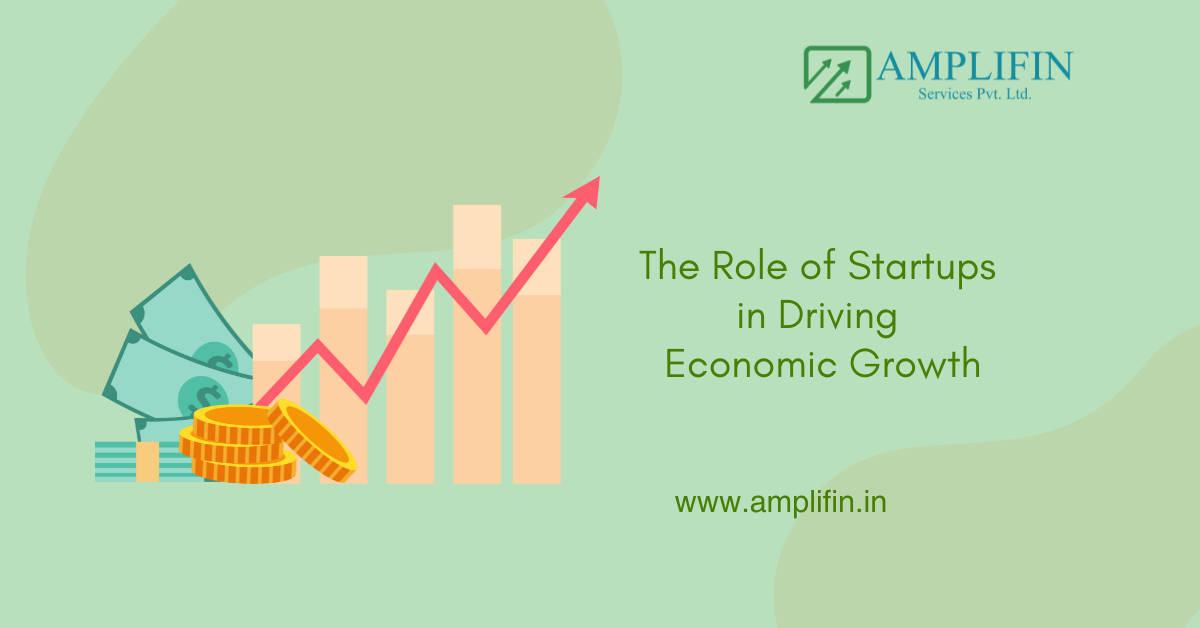Startups: The Powerhouses of Modern Economic Development
In the ever-evolving landscape of global commerce, startups have emerged as key players in shaping economic prosperity. These nimble, innovative ventures are more than just small businesses; they’re catalysts for change, job creation, and technological advancement. Let’s delve into how these dynamic entities are revolutionizing the way we think about economic growth.

Unleashing Innovation: The Startup Advantage:
Redefining Industry Norms
Startups are uniquely positioned to challenge established practices and introduce groundbreaking solutions. Unlike larger, more established companies, they’re unencumbered by legacy systems or outdated thinking. This freedom allows them to approach problems with fresh perspectives, often leading to disruptive innovations that can reshape entire industries.
Rapid Adaptation to Market Needs
The agility of startups enables them to quickly pivot and adapt to changing market conditions. This responsiveness not only helps them survive in volatile economic climates but also allows them to capitalize on emerging opportunities faster than their larger counterparts.
The Job Creation Engine:
Fueling Employment Growth
One of the most significant contributions of startups to economic development is their role in job creation. While larger corporations often focus on streamlining operations, startups are constantly expanding their workforce to support growth. This continuous influx of new positions helps offset job losses in other sectors and contributes to overall employment stability.
Cultivating Diverse Skill Sets
Startups often require employees to wear multiple hats, fostering the development of versatile skill sets. This multifaceted approach to work not only benefits the individuals by making them more adaptable but also contributes to a more flexible and resilient workforce overall.
Driving Technological Progress:
Bridging Research and Application
Many startups originate from academic or research environments, serving as crucial links between theoretical advancements and practical applications. By commercializing cutting-edge research, these companies accelerate the pace at which scientific discoveries translate into tangible economic benefits.
Collaborative Innovation Ecosystems
Startups often thrive in collaborative environments, forming clusters or hubs that facilitate knowledge sharing and cross-pollination of ideas. These innovation ecosystems can become powerful drivers of regional economic development, attracting talent and investment from around the globe.
Attracting and Mobilizing Capital:
Venture Capital as an Economic Stimulus
The startup ecosystem attracts significant venture capital, which acts as a powerful economic stimulus. This influx of investment not only fuels the growth of individual companies but also has a ripple effect throughout the economy, supporting various ancillary services and industries.
Wealth Creation and Reinvestment
Successful startups that achieve high-value exits, either through acquisitions or public offerings, generate substantial wealth. This newly created wealth often gets reinvested into the startup ecosystem, creating a virtuous cycle of investment and innovation.
Fostering Global Competitiveness:
Export-Oriented Growth
Many startups, particularly in the technology sector, are born with a global mindset. Their innovative products and services often have international appeal, leading to export-driven growth that benefits the broader economy through increased foreign exchange earnings and enhanced global market presence.
Attracting International Talent
Vibrant startup ecosystems serve as magnets for global talent. This influx of diverse skills and perspectives not only benefits the startups themselves but also enriches the local talent pool, making the region more competitive on the global stage.
Catalyzing Urban Revitalization:
Transforming Urban Landscapes
Startups often gravitate towards urban centers, breathing new life into previously underutilized areas. This concentration of innovative businesses can transform neighborhoods, attracting complementary services and revitalizing local economies.
Creating Innovation Districts
The clustering of startups in specific urban areas can lead to the formation of innovation districts. These specialized zones become hubs of creativity and economic activity, often spurring broader urban renewal efforts.
Promoting Economic Resilience:
Diversifying Economic Base
A thriving startup ecosystem helps diversify a region’s economic base, reducing reliance on any single industry. This diversification enhances overall economic resilience, making the area better equipped to weather sector-specific downturns.
Rapid Response to Economic Challenges
The agility of startups allows them to quickly adapt to economic challenges, often pivoting to address new market needs during times of crisis. This adaptability can help cushion the impact of economic shocks and accelerate recovery.
Challenges and Future Outlook:
Navigating Regulatory Landscapes
As startups continue to disrupt traditional industries, they often face regulatory challenges. Balancing innovation with consumer protection and fair competition remains an ongoing challenge for policymakers and entrepreneurs alike.
Ensuring Inclusive Growth
While startups drive significant economic growth, ensuring that the benefits are broadly distributed remains a key challenge. Initiatives to promote diversity in entrepreneurship and expand access to startup opportunities in underserved communities will be crucial for inclusive economic development.
Sustainability and Social Impact
Looking ahead, startups are increasingly expected to consider their environmental and social impact alongside their economic contributions. This shift towards sustainable and socially responsible innovation presents both challenges and opportunities for the startup ecosystem.
Conclusion: Startups as Pillars of Future Economic Growth
As we look towards the future of global economic development, the role of startups cannot be overstated. These dynamic entities are not just creating jobs and driving innovation; they’re reshaping our very understanding of what economic growth can look like in the 21st century. By fostering environments that support and nurture startup ecosystems, we can unlock new pathways to prosperity, resilience, and sustainable development.
The startup revolution is more than just a trend—it’s a fundamental shift in how we approach economic challenges and opportunities. As these innovative ventures continue to push boundaries and redefine possibilities, they will undoubtedly remain at the forefront of driving economic growth and shaping our collective future.
